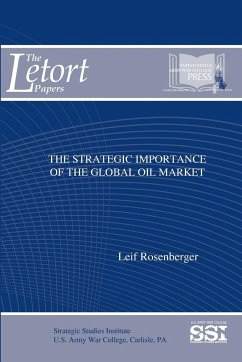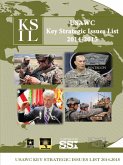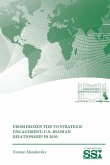In the past year, oil prices have plummeted. At first glance, the U.S. economy as a whole appears to be a big winner. Newspaper headlines talk about "America's oil independence." In Carlisle, PA, we can gas up our cars in late-March 2015 for less than $2.50 a gallon. That means more money in our pockets for consumer goods. Therefore, consumers are big winners and are rejoicing. Is it time for a victory parade? Not so fast, says Dr. Leif Rosenberger, the Chief Economist at U.S. Central Command. As someone who has spent 3 1/2 decades connecting economics and security as a scholar, educator, and now a practitioner in the U.S. Government, Dr. Rosenberger reminds us that, in economics and international business, appearances can be deceiving. He points out that shale oil producers in the United States are learning a bitter lesson about the cyclical nature of the international oil market. The more they produce, the more oil prices fall and the more their profits get squeezed.








